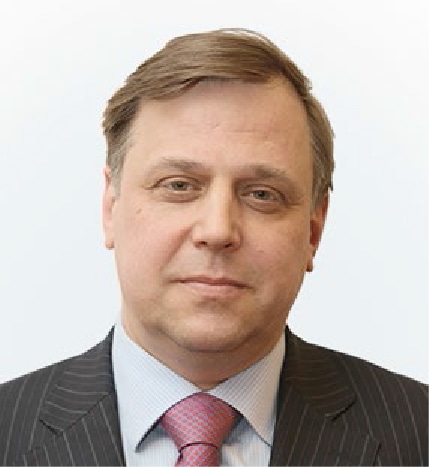HR management
 Dmitry Shakhanov Deputy CEO for HR and Social PolicyRussian Railways adheres to the principles of corporate social responsibility and implements a social policy focused on effective employee relations. People are the priority. Our employees are the primary driver of Russian Railways’ performance and competitiveness. Ultimately, they are the ones who create the Company’s market value. That is why attracting qualified talent across all lines of Russian Railways’ operations and motivating them to work productively and efficiently are the most important objectives of our social policy.
Dmitry Shakhanov Deputy CEO for HR and Social PolicyRussian Railways adheres to the principles of corporate social responsibility and implements a social policy focused on effective employee relations. People are the priority. Our employees are the primary driver of Russian Railways’ performance and competitiveness. Ultimately, they are the ones who create the Company’s market value. That is why attracting qualified talent across all lines of Russian Railways’ operations and motivating them to work productively and efficiently are the most important objectives of our social policy.
Human capital is the greatest asset of Russian Railways. The Company’s HR policy focuses on hiring, retaining, and developing employees as well as ensuring their social stability.
Employees structure
The Company continues to maintain a well-balanced and stable personnel structure. As at 31 December 2017, Russian Railways had 755,000 employees, down 2.5% y-o-y. The Company’s effective social and HR policy helped it to cut personnel turnover rate by 0.8 pp to 6.7%. With social responsibility and the need to retain skilled employees staying high on the agenda, lower headcount was driven by natural employee attrition, retirements, temporary and seasonal employment, redistribution of personnel between divisions and proactive personnel re-training.
Workforce analysis
Personnel categories
Gender structure
Education
Labour productivity
Russian Railways makes systemic efforts to increase labour productivity by reducing labour costs on the back of technological advancements and improved process flows. In 2017, labour productivity in transportation increased by 9.2% y-o-y.
Employee remuneration and motivation
In 2017, the average monthly salary of Russian Railways’ employees across all businesses increased by 7.7% to RUB 50,404 (in 2016 – RUB 46,852, on a comparable basis – RUB 46,793) driven by increased labour productivity and salary indexation as per the Collective Bargaining Agreement. More specifically, in March 2017, salaries were adjusted by 1.5%, with additional 4% and 2.5% adjustments in October for technical workers and all other categories respectively. Real salaries grew by 3.9%.
In 2017, the Company met the main budget parameters, improved adherence to passenger and freight train schedules, reduced downtime of transit railcars, and cut downtime of locomotive crews. After the reporting period, in February 2018, the employees received a lump-sum remuneration based on above-the-target labour productivity performance in 2017. The Company incentivises employees to enhance efficiency with RUB 83.3 m spent on such incentives in 2017. Crew members had a common incentive framework based on station performance indicators: this model covered a total of 56 marshalling yards and district stations.
Employee training and development
Russian Railways prioritises personnel training, retraining, education and professional development across all employee categories. In 2017:
- over 46,000 workers were trained in key professions;
- over 25,000 workers were trained in their first profession;
- 13,000 people were trained in their second profession;
- more than 165,000 employees upgraded their skills.
The Company has put in place and successfully develops a unique corporate system of vocational training comprised of 15 vocational training centres.
Russian Railways continued close cooperation with industry-based higher education institutions in 2017 to train specialists with higher education and secondary vocational education. At present, more than 34,000 students are studying at railway universities sponsored by Russian Railways.
In 2017, 63,400 managers and office workers underwent training at the Corporate University of Russian Railways.
Employee healthcare
In 2017, the Board of Directors approved the Conceptual Framework for the Reform of Healthcare Facilities of Russian Railways until 2020 aimed at maintaining and developing the system of high-quality healthcare services under voluntary health insurance (VHI) plans. Maintenance costs for cultural, sports, health, and recreation facilities accounted to RUB 1.9 bn.
The Company’s healthcare services are also an essential component of train traffic safety with more than 1.6 million mandatory pre-employment and regular medical examinations, and 29 million pre-trip medical check-ups conducted each year.
Private pension plans
Russian Railways has been developing a corporate pension system based on shared employee/employer contributions to the employee’s future pension. The private (corporate) pension is an additional measure of social support to workers; its strategic goal is to ensure a replacement rate of at least 40% of employee’s lost earnings. More than 596,700 Russian Railways’ employees have pension plans with Blagosostoyanie Private Pension Fund; 304,400 former railway workers draw a private pension. In 2017, pensions were granted to 17,500 Russian Railways’ employees.